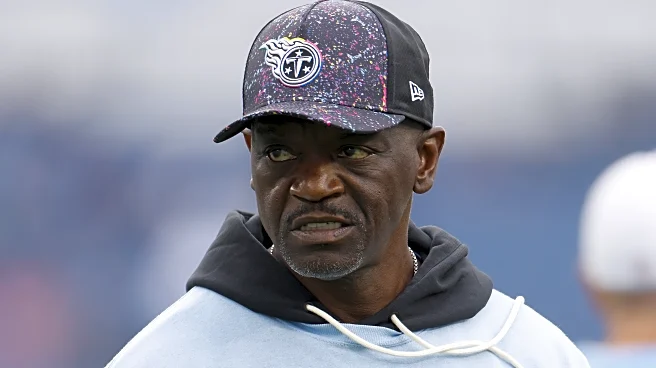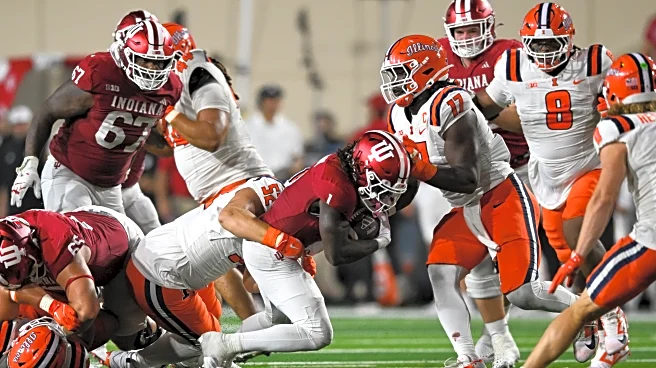Rapid Read • 8 min read
The Trump administration has appointed Terry Cole, head of the Drug Enforcement Administration, as Washington D.C.'s 'emergency police commissioner,' granting him powers typically held by the city's police chief. This move is part of a broader federal law enforcement takeover in the capital, aimed at increasing national control over local policing. Attorney General Pam Bondi issued a directive stating that the Metropolitan Police Department must receive approval from Commissioner Cole before issuing any orders. This decision has sparked controversy, with D.C. Attorney General Brian Schwalb labeling the directive as 'unlawful' and urging the city's police force to continue following orders from the mayor-appointed police chief, Pamela Smith. Washington Mayor Muriel Bowser also criticized the move, asserting that no statute allows federal officials to assume personnel authority over the district.
AD
This development represents a significant assertion of federal authority over local governance, raising concerns about the balance of power between federal and local jurisdictions. The appointment of a federal official to oversee local police operations could set a precedent for increased federal intervention in local matters, potentially impacting the autonomy of other U.S. cities. The move is part of President Trump's broader agenda to enforce strict law-and-order policies and expedite deportations, which may affect immigration enforcement and civil liberties. The situation has heightened tensions between the Republican administration and the predominantly Democratic city, with potential legal battles looming over the directive's legitimacy.
The directive is likely to face legal challenges from D.C. officials, who argue that it violates local governance laws. The city's police force may continue to operate under the mayor's orders, potentially leading to a standoff with federal authorities. As the situation unfolds, stakeholders including civil rights groups, local residents, and political leaders will closely monitor the implications of increased federal control. The Trump administration may reassess its approach as the 30-day period for federal law enforcement control nears its end, with Congress expected to review the actions taken.
The federal takeover of D.C.'s police operations raises ethical and legal questions about the limits of executive power and the protection of civil liberties. The move could influence public perception of federal authority and its role in local governance, potentially affecting future policy decisions. The situation also highlights the ongoing debate over immigration enforcement and sanctuary policies, with implications for communities across the nation.
AD
More Stories You Might Enjoy












